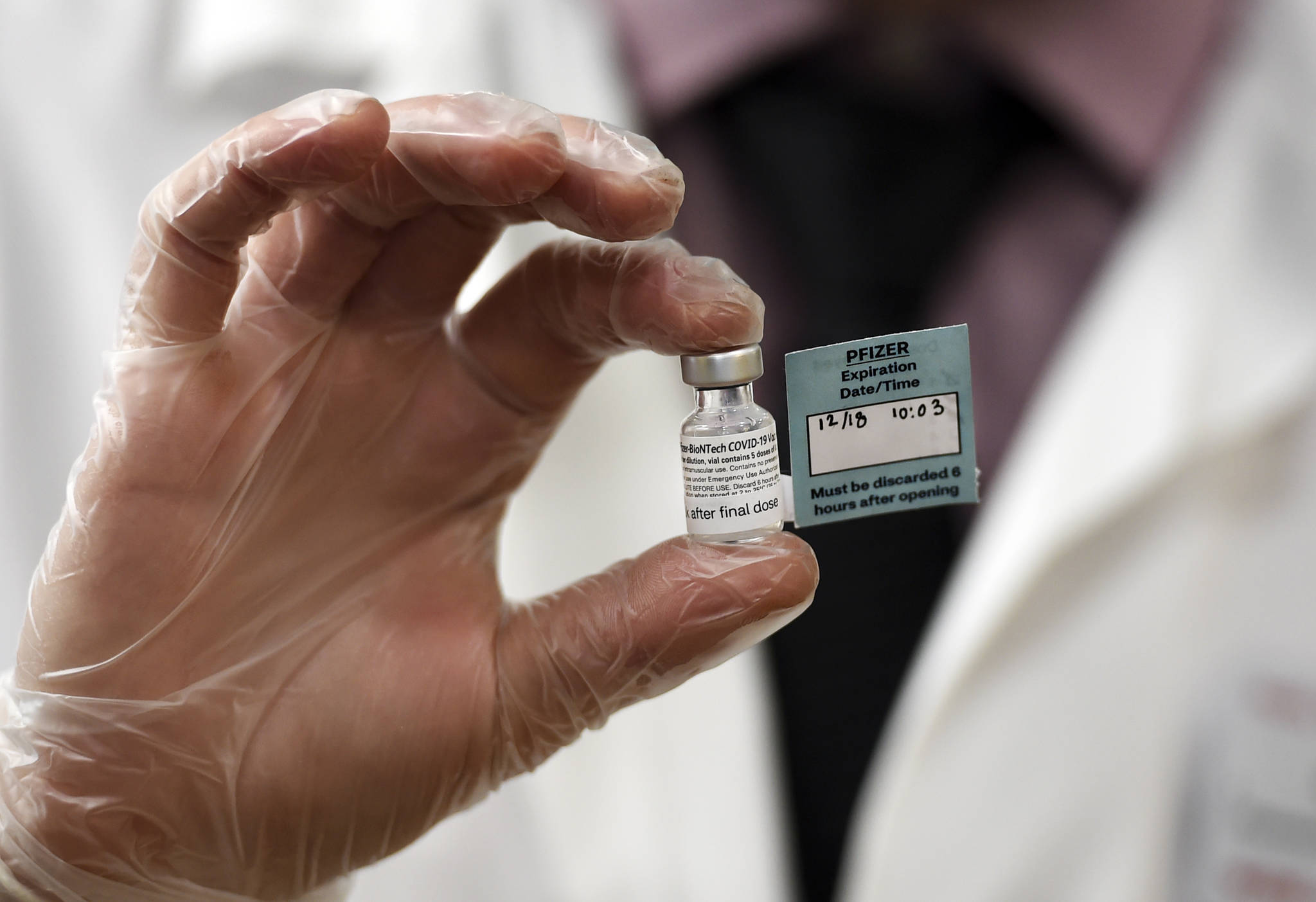By Win Gruening
Alaska has already differentiated itself during the pandemic by achieving some of the lowest COVID-19 mortality rates in the country. Fortunately, the Dunleavy administration wants to keep it that way as evidenced by its recent announcement that it will give priority to seniors age 65 and over in the next stage of the state’s vaccine allocation plan.
Alaska’s plan departs from federal guidance in several respects. According to Dr. Anne Zink, state chief medical officer, the Alaska-specific recommendations were first debated by a committee of medical experts, then tweaked by Republican Gov. Mike Dunleavy’s administration.
Amid surging COVID-19 cases and limited vaccine doses, states were faced with tough choices on whom to vaccinate first. Traditionally, the Centers for Disease Control and Prevention has issued guidance for states to follow. But ultimately, the decision is left to governors and health officials who are not required to follow CDC guidelines.
There has been almost unanimous agreement at the national and state level that the first phase of vaccination, known as 1a, would include about 21 million health care workers and 3 million adults living in long-term care facilities. According to the CDC, these groups are at highest risk of requiring hospitalization or dying from COVID-19, and protecting them first, in turn, reduces the burden on society. Alaska also chose to include, in Phase 1a, frontline EMS and fire service personnel providing medical services, who are frequently exposed to COVID-19 patients.
The more difficult decisions came when figuring out who to include in the following phases, known as 1b, 1c and Phase 2. State officials throughout the country wrestled with whether to assign priority to older adults and people with serious medical conditions, or to “essential workers.” Seniors, who are dying of the virus at the highest rates, were pitted against “essential workers”, a nebulous category that encompasses non-healthcare front-line workers highly exposed to infection, but also includes many non-front-line workers.
“If your goal is to maximize the preservation of human life, then you would bias the vaccine toward older Americans,” Dr. Scott Gottlieb, the former Food and Drug Administration commissioner, said recently. “If your goal is to reduce the rate of infection, then you would prioritize essential workers. So it depends what impact you’re trying to achieve.”
On Dec. 20, a federal vaccine committee advising CDC recommended that Phase 1b be designated for elders 75 and over, plus frontline essential workers like teachers, postal service, grocery store workers and bus drivers – regardless of age. The committee also recommended that following that, in Phase 1c, persons aged 65–74 years, persons aged 16–64 years with high-risk medical conditions and essential workers not recommended for vaccination in Phase 1b should be offered the vaccine.
While the CDC has yet to issue their final guidance on Phase 1b, individual states have already begun formulating their plans for the second wave of vaccinations. This phase is now slated to begin in Alaska on Monday, Jan. 11.
In Alaska, as part of its Phase 1b planning process, a public hearing with members of the Alaska Vaccine Allocation Advisory Committee was held and written and oral testimony was received from more than 380 people and groups.
Individuals and interest groups implored state health officials to include their workers or demographic in the next phase of vaccinations. Testimony came from the commercial fishing industry, senior citizens, infrastructure workers, pilots, fishermen, teachers, and the staffs of prisons, domestic violence shelters, and court system — even the Alaska State Legislature.
Ultimately, though, the administration recommended within Phase 1b, to allow a larger group of seniors aged 65 and older to be vaccinated first, more liberal than the federal guideline, prior to essential workers who will be vaccinated in later tiers of Phase 1b.
Perhaps members of groups testifying could legitimately claim how essential they are in our society under different circumstances, but their arguments pale when weighed against the mortality statistics of this pandemic.
According to Alaska Department of Health and Social Services, Alaskans aged 60 and older comprise more than 85% of COVID-19 deaths and 60% of related hospitalizations, despite representing only 15% of all cases.
Alaskans can be grateful that the Dunleavy administration recognized this.

